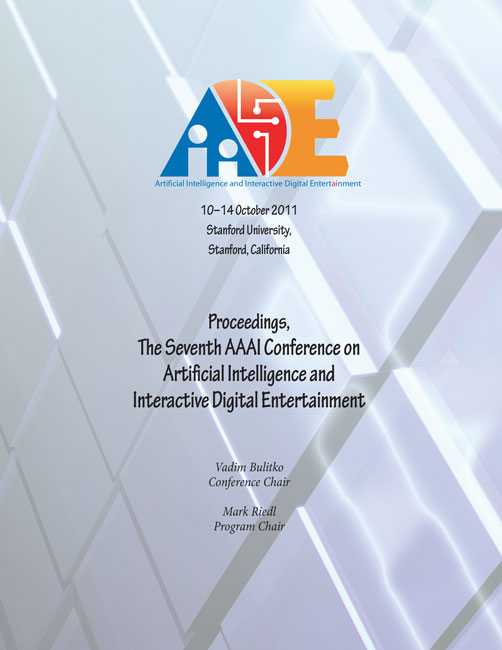A Computational Model of Perceived Agency in Video Games
DOI:
https://doi.org/10.1609/aiide.v7i1.12437Keywords:
Agency, Interactive Storytelling, Player Modeling, User Study, Video GamesAbstract
Agency, being one's ability to perform an action and have some influence over the world, is fundamental to interactive entertainment. Although much of the games industry is concerned with providing more agency to its players, what seems to matter more is how much agency each player will actually perceive. In this paper, we present a computational model of this phenomena, based on the notion that the amount of agency that one perceives depends on how much they desire the outcomes that result from their decisions. Using a structure for high-agency stories that we designed specifically for this intent, we present the results of a 141-participant user study that tests our model's ability to select subsequent events in an original interactive story. Using a newly validated survey instrument for measuring both agency and fun, we found with a high degree of confidence that event sequences selected by our model result in players perceiving more agency than players who experience event sequences that our model does not recommend.

